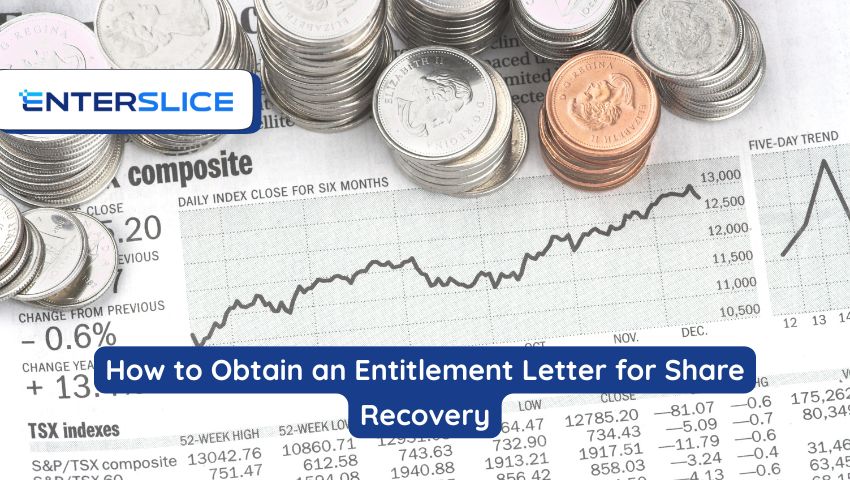The Investor Education and Protection Fund (IEPF) is a vital initiative established by the Government of India to protect the interests of investors. When dividends or shares remain unclaimed for seven consecutive years, companies are mandated to transfer these assets to the IEPF. Fortunately, shareholders or their legal heirs retain the right to reclaim these assets by adhering to a structured process. A pivotal element in this process is obtaining an entitlement letter, which serves as official proof of a claimant’s eligibility to recover shares from the IEPF. This guide outlines the steps to secure an entitlement letter and successfully achieve recovery of shares from IEPF, ensuring that all user queries are addressed with clarity and precision.
Understanding the Entitlement Letter
An entitlement letter is a formal document issued by the company whose shares have been transferred to the IEPF. It verifies that the claimant is either the rightful owner or a legally recognized heir entitled to recover the shares. This document is indispensable in the recovery of shares process, as it establishes the claimant’s legitimacy, a requirement enforced by the IEPF Authority. Without this letter, any attempt to reclaim IEPF unclaimed shares will be stalled, underscoring its importance in the recovery procedure.
Steps to Obtain an Entitlement Letter
To obtain an entitlement letter for the recovery of shares, follow these detailed steps:
- Contact the Company or its Registrar:
Initiate the process by reaching out to the company whose shares you intend to recover or its registrar and transfer agent (RTA). Provide them with your intent to claim IEPF unclaimed shares. Contact information is typically available on the company’s official website or the IEPF portal (www.iepf.gov.in). - Provide Necessary Documentation:
Submit a comprehensive set of documents to substantiate your identity and ownership. These generally include:- A copy of your PAN card
- A copy of your Aadhaar card or another government-issued identification
- Original share certificates (if available)
- Proof of address (e.g., utility bill or bank statement)
- Bank account details (for dividend disbursements)
- For legal heirs: additional documents such as a death certificate, succession certificate, or legal heir certificate.
- Verification Process:
The company or RTA will review your submitted documents to confirm your entitlement. This involves cross-checking share records and ensuring compliance with legal requirements. For legal heirs, proof of relationship with the deceased shareholder must be validated. Upon successful verification, the entitlement letter will be issued, enabling you to proceed with your claim.
Also Read: Steps for Registering an Alternative Investment Fund
The Share Recovery Process
With the entitlement letter in hand, you can commence the recovery of shares from IEPF through the following steps:
- File Form IEPF-5:
Access the IEPF website and complete Form IEPF-5 online. This form requires accurate details, including your name, address, share specifics, and the entitlement letter. Precision in this step is critical to preventing processing delays. - Submit Documents to the IEPF Authority:
Accompany the form with the following documents:- A copy of the entitlement letter
- A copy of Form IEPF-5
- A copy of your PAN card
- A copy of your Aadhaar card
- Bank account details
- Original share certificates (if applicable)
- Proof of entitlement (e.g., dividend warrants or transaction statements)
- Timeline and Follow-up:
The IEPF Authority typically processes claims within 60 days. You can monitor your claim’s status on the IEPF website using the Service Request Number (SRN) generated upon submission of Form IEPF-5. Regular follow-ups are recommended to address any potential issues promptly.
Common Challenges and How to Overcome Them
The recovery of shares process may encounter obstacles. Here are common challenges and their solutions:
- Missing Documents:
If original share certificates or other required documents are unavailable, request duplicates or alternative proofs from the company or RTA. In some instances, an indemnity bond may suffice to replace missing paperwork. - Delays in Processing:
Should your claim experience delays, contact the IEPF Authority or the company for updates. Verify that all submitted documents are complete and consistent to expedite resolution. - Dealing with Legal Heirs or Nominees:
For claims on behalf of a deceased shareholder, ensure all legal documentation—such as a succession certificate—is secured prior to requesting the entitlement letter. This preemptive step minimises complications.
Also Read: Eligibility Criteria for NBFC Registration Online
FAQs
Below are answers to frequently asked questions regarding the recovery of shares from IEPF:
1. What is an entitlement letter?
An entitlement letter is a document issued by a company affirming that a claimant is eligible to recover IEPF unclaimed shares. It is a mandatory component of the claim submission to the IEPF Authority via Form IEPF-5.
2. How do I apply for an entitlement letter?
Contact the company or its registrar and transfer agent, submit the required documentation (e.g., proof of identity and ownership), and await verification. The letter will be issued upon confirmation of your entitlement.
3. What documents are required to obtain an entitlement letter?
Typically, you need:
- Proof of identity (PAN card, Aadhaar card)
- Proof of address
- Original share certificates (if available)
- Bank account details
- For legal heirs: death certificate, succession certificate, or legal heir certificate.
Conclusion
Securing an entitlement letter is an essential step in the recovery of shares from IEPF. By systematically contacting the company, providing requisite documentation, and navigating the verification process, shareholders can reclaim their unclaimed assets efficiently. The entitlement letter not only validates your claim but also facilitates a seamless interaction with the IEPF Authority. If you have IEPF unclaimed shares, act promptly to recover your investments and safeguard your financial interests.









